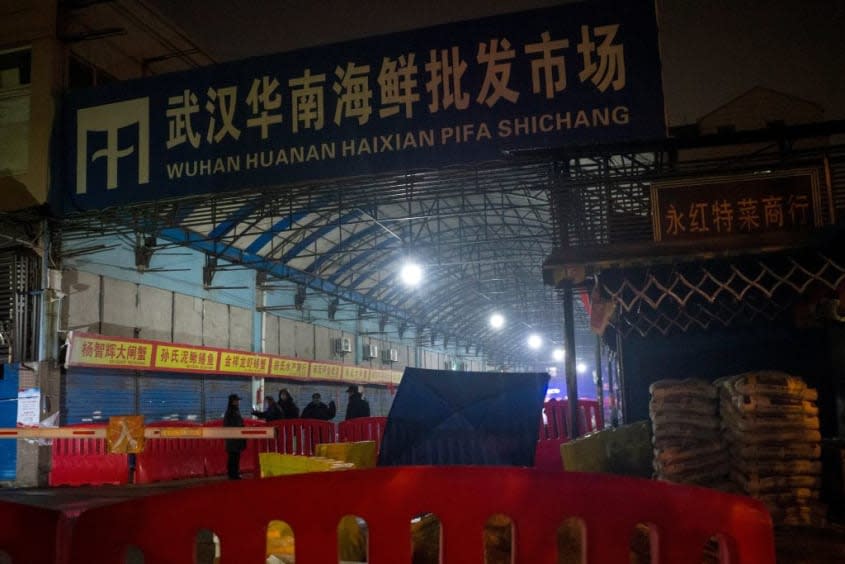Evolutionary virologist once open to Wuhan lab leak theory now says COVID spread from animal market

Michael Worobey, an evolutionary biologist who signed a high-profile letter in May urging further study of the theory that the COVID-19 coronavirus accidently leaked from the Wuhan Institute of Virology, reported in the journal Science on Thursday that new research strongly suggests the new virus spread to humans from animals at the Huanan Seafood Market, several miles from the lab. His reconstruction of the early days of the pandemic adds to mounting evidence that the coronavirus originated in bats and infected humans through an intermediary mammal, The Wall Street Journal reports.
Worobey, a leading expert in tracking the evolution of viruses, pored through all available records and found that 10 of 19 early COVID-19 patients worked at or had visited the Huanan market, around the area where raccoon dogs were slaughtered. His research determined that a World Health Organization report incorrectly identified a 41-year-old accountant who had not been near the market as the earliest known case. Instead, the first confirmed patients was a female seafood vendor who became symptomatic on Dec. 11.
"In this city of 11 million people, half of the early cases are linked to a place that's the size of a soccer field," Worobey said. "It becomes very difficult to explain that pattern if the outbreak didn't start at the market." He reiterated to The Washington Post that "it becomes almost impossible to explain that pattern if that epidemic didn't start there."
Chinese officials have said the Huanan market wasn't the source of the pandemic. "The market was quickly closed, the animals culled before any were screened for SARS-CoV-2, and everything cleaned and sanitized soon after the outbreak began," the Post reports. "Still, a subsequent investigation showed that traces of the virus were found on surfaces in the market, including drains, particularly in the area where vendors sold animals."
Worobey's reconstruction of the pandemic's origin doesn't conclusively prove nature over lab leak, and some virologists said that given China's reticence to share information, that debate may never be settled. "He has done an excellent job of reconstructing what he can from the available data, and it's as reasonable a hypothesis as any," Columbia University virologist W. Ian Lipkin told The New York Times. "But I don't think we're ever going to know what's going on, because it's two years ago and it's still murky."
You may also like
Virginia local school board reverses ban of 'sexually explicit' books after public outcry
A Harry Potter reunion is happening, reportedly without J.K. Rowling
Report: House to vote Wednesday on censuring GOP Rep. Paul Gosar over video

